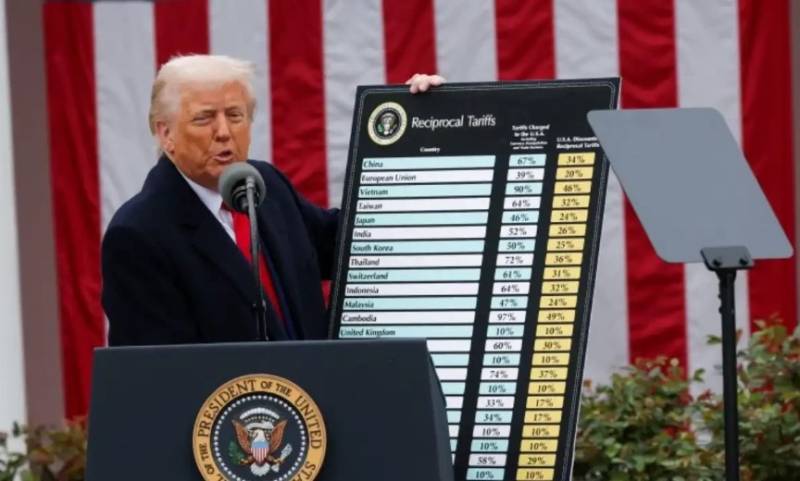Lahore, April 9: President Donald Trump has announced a 90-day tariff suspension for countries that refrained from retaliatory measures against U.S. trade actions.
The temporary tariff pause, effective immediately, includes a reduced reciprocal tariff rate of 10% during this period.
Key Details of the Tariff Pause
In a social media post on Wednesday afternoon, Trump stated that over 75 countries engaged with U.S. officials from the Departments of Commerce, Treasury, and the Office of the U.S. Trade Representative (USTR) to address trade barriers, currency manipulation, and non-monetary tariffs. He emphasized that these nations avoided retaliatory steps against the U.S., prompting the suspension.
The 90-day window allows negotiators to resolve disputes on issues like unfair trade practices and intellectual property violations. The reciprocal tariff rate will drop to 10% for qualifying partners, down from earlier proposed figures.
Read more: PM Decided to Send Larger Delegation to US for Tariff Talks
Conditions and Implications
The tariff pause applies exclusively to nations that did not retaliate against recent U.S. trade measures. Countries like China, the EU, and Canada—previously engaged in tit-for-tat tariffs—are excluded from this relief.
Analysts suggest the move aims to ease global trade tensions ahead of the 2024 election cycle while maintaining pressure on adversarial economies. However, critics argue that the temporary reduction lacks clarity on long-term strategies for addressing structural trade imbalances.
Departments Involved in Tariff Pause Negotiations
- Department of Commerce: Leading talks on export controls and market access.
- Department of Treasury: Addressing currency manipulation concerns.
- USTR: Managing tariff reciprocity and intellectual property disputes.
Officials from these agencies will spearhead negotiations during the 90 days, focusing on securing bilateral agreements.
Read more: Trump Tariffs on Chinese Goods Hit 104%, Pakistan 29%, Markets React Globally
Global Reaction and Next Steps
Trade partners like Mexico, Japan, and Brazil—which avoided retaliation—hailed the decision as a step toward stabilizing supply chains. Meanwhile, excluded nations criticized the move as selective and politically motivated.
The White House confirmed that failure to reach agreements within 90 days could revive higher tariffs. Businesses reliant on imports, particularly automotive and tech sectors, welcomed the pause but urged permanent solutions.
Why This Matters
The suspension offers temporary relief to U.S. allies amid inflationary pressures and supply chain disruptions. However, its short-term nature leaves uncertainties for long-term trade planning. The 10% reciprocal tariff could also reshape competitive dynamics in key industries like agriculture and manufacturing.









